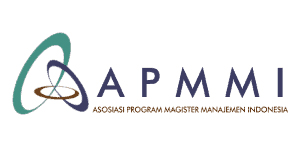THE ROLE OF MOTIVATION IN MEDIATING THE EFFECT OF PLACEMENT AND DISCIPLINE ON EMPLOYEE PERFORMANCE AT UPTD PPRD BALI PROVINCE IN GIANYAR DISTRICT
DOI:
https://doi.org/10.30996/jmm17.v9i01.6444Abstract
Human Resources has become an important global issue and affects the government system in Indonesia.
This condition is because human resources act as implementers of various activities carried out by the
organization. Performance is the result of work in quality and quantity achieved by an employee in
carrying out his duties. Good employee performance will affect organizational performance. Factors that
affect performance include compensation, employee placement, work environment, work motivation,
organizational culture, leadership, work discipline, job satisfaction. This study is devoted to assessing the
effect of placement, discipline and motivation on the performance of civil servants at the UPTD PPRD
Bali Province in Gianyar Regency. Through research with a sample of 35 civil servants with survey
methods and data collection instruments in the form of a 5 (five) Likert questionnaire containing
questions about indicators that affect performance including placement, discipline and motivation. The
data used are primary and secondary data, both quantitative and qualitative data. The data analysis
method used descriptive analysis and inferential analysis using the Partial Least Square (PLS) approach.
The results showed that the placement had a positive and significant effect on performance. Placement
has a positive and significant effect on motivation. Discipline has a positive but not significant effect on
motivation. Discipline has a negative and insignificant effect on performance. Motivation has a positive
and significant effect on employee performance. Motivation partially mediates the effect of placement on
employee performance. Motivation cannot mediate the effect of discipline on employee performance.
Keywords: Placement, Discipline, Motivation, Performance
Downloads
Downloads
Published
How to Cite
Issue
Section
License
Authors who publish to JMM17: Jurnal Ilmu Ekonomi Dan Manajemen agree to the following terms:
- Authors transfer the copyright and grant the journal right of first publication with the work simultaneously licensed under a Creative Commons Attribution-ShareAlike 4.0 International License.. that allows others to share the work with an acknowledgement of the work's authorship and initial publication in this journal.
- Authors are able to enter into separate, additional contractual arrangements for the non-exclusive distribution of the journal's published version of the work (e.g., post it to an institutional repository or publish it in a book), with an acknowledgement of its initial publication in this journal.
- Authors are permitted and encouraged to post their work online (e.g., in institutional repositories or on their website) prior to and during the submission process, as it can lead to productive exchanges, as well as earlier and greater citation of published work (See The Effect of Open Access)












